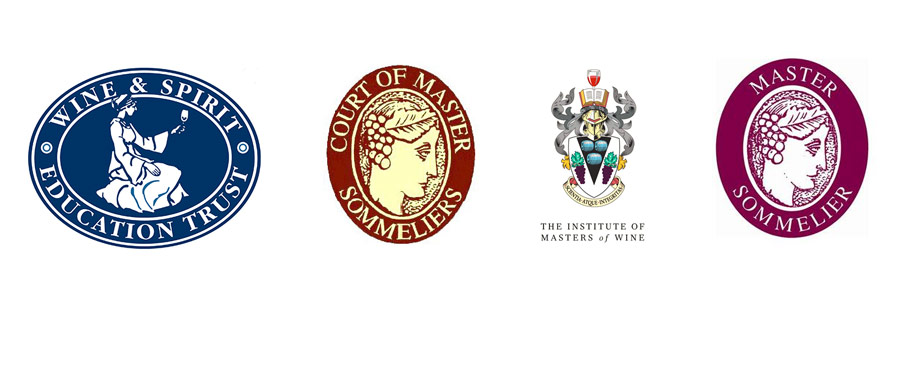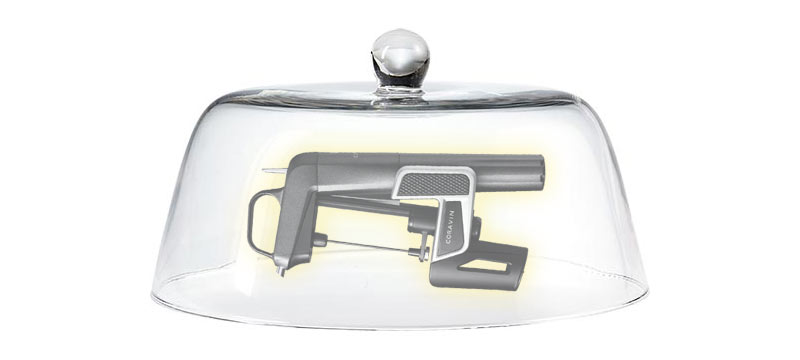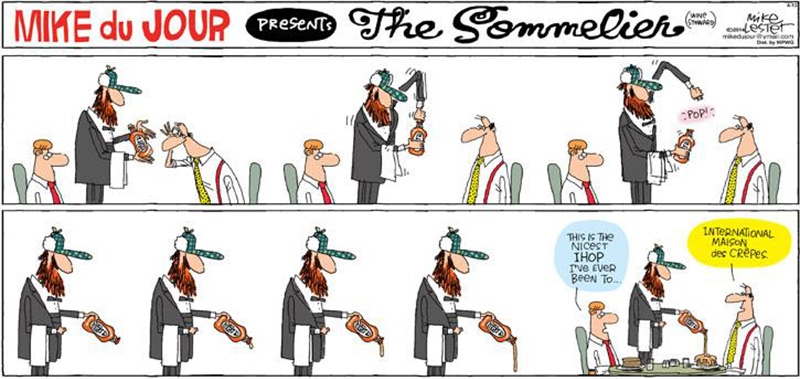Please note that while there’s a wealth of information here, I’ve written an updated version of this education analysis as well that would be worth your while to read.
Years ago, I found myself quite baffled by the pile of acronyms around wine and around 2010, I wanted to expand my wine knowledge from what I’d taught myself up to that point. I lived in San Francisco at the time and I started to look into various programs only to shake my head and not really understand what the hell any of these Wines & Spirits Education Trust or Court of Master Sommeliers groups were let alone the differences between a Master of Wine and a Master Sommelier.
I had forgotten about wanting to further my knowledge until two things happened just after my initial investigations. The first was that I was on an official trip to a wine region and found that while I kept up with the others, there were clearly some holes in what I knew. The more I looked at these holes, the more they grew. Not only was I seeing them in my writing, I was also starting to see them in others who had pieced their knowledge together through scratching around on the internet like digital chickens. I didn’t want to come across like this anymore and so I started to look much harder as to what was the best direction for me.
Admittedly, I came at all of this more than a little backwards. As it currently sits, in addition to writing for a number of well-known publications, I’m also a Certified Sommelier with the Court of Master Sommeliers. This is Level 2/4 of their overall program and it really isn’t the typical way to go about this so I’m writing this article in hopes that I can give some guidance and clarify things for people who are in or will be in the same shoes that I was in.
The “Normal” Trajectory
There are a number of wine schools out there these days but for me, it came down to doing either the Wine & Spirits Education Trust (WSET) track or the Court of Master Sommeliers (CMS) track. I went with the CMS. My reasons for this are varied but the core difference between WSET and CMS is that the WSET has way more class time while the CMS is much more independent study. The CMS also has a heavy service component to it (thus “sommelier” being in the name) whereas the WSET doesn’t and is more academic.
If one is a wine writer, the WSET would make more sense. If one works in the restaurant trade, the CMS makes more sense. For me, while I’m a wine writer and I don’t work in the restaurant trade, the CMS ultimately made more sense as I talk about wine a lot, do private wine tastings & tours from time to time, and just needed more of a public-facing aspect to my wine knowledge.
For anyone else, if you’re not really in the restaurant trade, then the proper trajectory would be WSET 1,2,3,4. If you want the sommelier aspect, go for CMS 1 & 2 after WSET 3. Note that CMS 3 after WSET 4 won’t really do too much for you as the programs really diverge after CMS 2 and WSET 3.
It’s important to note that despite being originally founded by the same groups in England, the WSET 1-4 levels don’t correspond with the CMS 1-4 as WSET 3 and CMS 2 are more or less the same in theoretical knowledge. Level 4 of CMS is the Master Sommelier while the Master of Wine would be something like Level 5 in WSET terms. The MW used to be like a Level 6 as there was at one point a Level 5 Honors with the WSET but they’ve done away with that and those who do well in Level 4 will be invited to consider starting the Master of Wine program. It’s also important to note that WSET 4 gets considerably more intense in terms of the science behind wine and as such forms a quite large departure for those looking in to the sommelier path.
Like I said, this is all a bit screwy so let me elaborate in more detail on the specific aspects. You can also take a look at this chart that was put out by the WSET & CMS recently.
WSET
This is a purely academic program but it’s really designed for those who want to start learning the basics of wine. You don’t have to start at Level 1 or 2 though and can take a test to start at Level 3. I think most people who know a little about wine would start at Level 2. Those who really want to step in gradually in more casually, the Level 1 was created for you. The levels each get progressively more involved and I’ve heard that the tastings get quite difficult (and are actually harder than the CMS) as you go for the Level 4 Diploma given that how the wine was made is of greater importance than just identifying it.
These classes aren’t terribly cheap, but in the wine world you get what you pay for and with the higher levels, a good chunk of that cost is paying for the wines. While in-person classes are usually the preferred way to go about these, there are the online course which are significantly cheaper although you still need to go to the classroom once for the tastings as well as once for the exam. For the Level 4, you will need to search out wines to taste. This can be hard when not living in a major wine trade city such as London or New York or in say, Istanbul where it’s even trickier due to their ridiculously restrictive alcohol laws at the moment.
There are some aspects to the WSET program that can be a turn off. The first time I looked in to doing this was when living in San Francisco. At the time I was writing for a magazine who was going to pay a portion of the fee to write an article about “Becoming a Sommelier” (in hindsight I was pitching great ideas to these idiots way ahead of the curve…) What fit the budget was going to be the WSET 2. The problem is that in passing this level, you can’t call yourself a sommelier. You can’t call yourself one after Levels 3 or 4, or even the Master of Wine for that matter as this is not a service-oriented program.
I didn’t like the interactions that I had with some of the schools putting on the classes. As one of my co-exam sitters for the CMS 2 said, “WSET feels like a sausage factory.” In some ways, it’s true as people who get the certifications can then open up sanctioned franchises of the program. So, there’s something of a pushiness to get you to take the courses. This is a shame as from what I’ve seen and heard, the actual body of material in the course is quite sound and this may just be an aspect that is more “American” than what you find in Europe.
But earning these levels is a solid base given that enough people in the wine trade have heard this rather clumsy acronym to know what it is although pronunciation varies a great deal by language. Here in Spain for instance, they’ve invented the word, “viset” to name it as “doble uve-ese-e-te” is a mouthful of marbles.
CMS
The Court of Master Sommeliers has all the knowledge of the WSET but with all the service of that thing we call the, “sommelier”. This term has gotten to be quite sexy in recent years and so a lot of people are opting for this certification as I did. I don’t really need to go on at length about the pedigree that the name of this organization carries. The fact that a film, “Somm” and now a TV series, “Uncorked” have been made to show what people go through to reach the Master Sommelier level says enough.
This is not a course I recommend unless you really want to be in some form of wine service trade. Taking all the levels is mandatory and many people will find them considerably more difficult than they had originally envisioned. While it may be different in the US, for Europe, the organization really presses you for relevant experience prior to attending the Level 1 & 2 courses. They are not elitist by any means, but this is a vocational certification with a huge degree of knowledge behind it. Despite being a lover of wine for years and a professional for the last few, I only passed the Level 1 on my first go (learn how this works) and had to go back and study to pass the Level 2. The CMS functions primarily as a certifying body and isn’t like the WSET where people take it to follow an academic trajectory.
This is not an easy tract and the classes are just a couple of days which aren’t designed to teach you everything you need to know. They’re something of a review and you need to come in to the course with a large degree of knowledge already. That said, it’s an excellent program with a great track record and the Master Sommeliers truly are that no matter what people in the general public may think about this oh-so fancy title. I just mention all of these reservations because again, these certifications cost a bit and if you are much more focused on the wine knowledge part of things, go the WSET route.
Here’s a very basic breakdown of how I feel the levels of the CMS work:
- Introductory Level 1 – “What is wine?” Do you know what phylloxera is? What is liqueur de tirage? This level is all about understand what exactly wine is and how it’s made. Read more on the full exam.
- Certified Level 2 – “Where is wine?” Know what state in Australia, Wrattonbully resides? Can you name an excellent year for Bordeaux? Know what grapes are used in Moulin-à-Vent? The level of detail and breadth of the knowledge expands massively to know what wines come from where and what style. Read more on the full exam.
- Advanced Level 3 – “Who is wine?” Can you name a Grand Cru producer in Corton to pair with duck breast? What was a good year for Mt. Difficulty? If you have these off the top of your head, you might be prepared for this level although the blind tasting is nearly at the Master level.
- Master Level 4 – “You are wine.” There’s not really any way to sum up this level as the knowledge base is far beyond what I have at the moment and the few who attain are so deep in to wine (as well as the rest of beverages one must add) that it’s hard to fathom.
Master of Wine
So what is is this title? Well, like the WSET, it’s an academic title and there is no “sommelier” aspect to it. One of the most famous MW’s, Jancis Robinson always jokes, “Don’t have me pour a bottle of wine! I would spill it everywhere.” But this encompasses every facet of wine from viticulture, to vinification, to marketing & sales, to global wine trends, to I don’t even know what but if it has to do with wine, it’s in this this degree. This is the degree that usually those who write about wine ultimately pursue but there are a number of winemakers with it as well.
There are nearly 400 people in the world who have earned this title and there are a few who didn’t go the WSET route but for the general majority, they seem to go through WSET. The Master of Wine then takes at least three years (and usually more), more papers, more exams, and just more of everything. It is not for the faint of heart. It is also by taking an entrance exam, getting sponsored (two MWs or others of note in wine), and then invited to start so just having the WSET 4 doesn’t mean you can hop into studying for the MW. Again, they want to see a bit of experience in some form of writing or having made wine, totally at least three years. You also need to be recommended by an MW or someone else respected in the wine trade. A huge change is that while the WSET has a great many classes, the MW is all about independent, sometimes lonely study.
As this degree takes so long to accomplish and if someone has completed the WSET 4 some time ago, you might see them put “Master of Wine Student” in their bio or resume. Be very suspect of this because unless they are officially enrolled in the MW program, this is a serious fudge. Not having the WSET 4 is usually a dead giveaway, as well as being under 30… Press anyone for more details on this as going around saying this is a disservice to those who truly are enrolled in and pursuing this insanely rigorous program.
Master Sommelier
It’s a common question as to what is the difference between the Master of Wine and Master Sommelier. Basically, the MW is academic with heavy theory and the MS is service with heavy compendium. While I obviously haven’t taken these exams, it seems to me an example of this would be, for the MW you would be asked, “What were the advantages to a producer in making a Grand Cru Brut Nature Champagne in 2000?” whereas the MS would be asked, “Recommend a Grand Cru Champagne Brut Nature from 2000 and why it would pair with this plate of Gruyere cheese.” As you can see, similar knowledge base, but very different implementations.
There are just over 200 people in the world who have passed the MS. It’s extremely difficult as taking that classic theory aspect you see in the MW out of the equation makes everything about holding a massive amount of information about producers and regions in your head. This makes sense as it’s how you need to know things when working the floor, although the Master level is one unto itself.
But that’s about “it”. Hopefully this outlines these various programs in a way that’s useful to people out there so that they can get where they want to go a lot faster than I did. It’s a lengthy journey whichever path you choose, but if you love wine and working in it, it’s one that’s most definitely worth the effort.
You’re reading a free article on Hudin.com.
Please consider subscribing to support independent journalism and get access to regional wine reports as well as insider information on the wine world.



